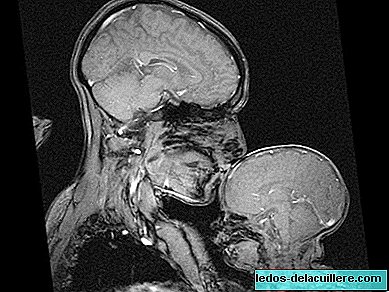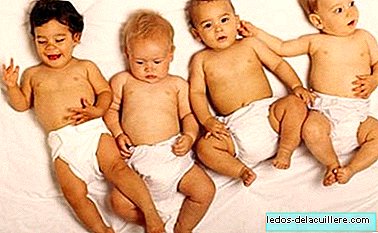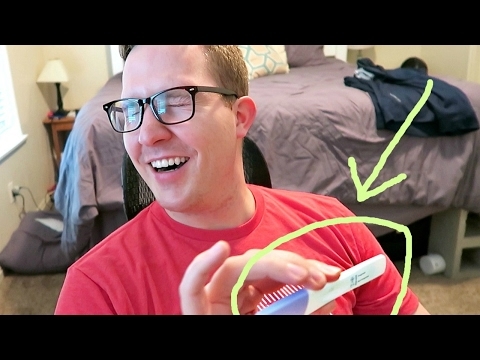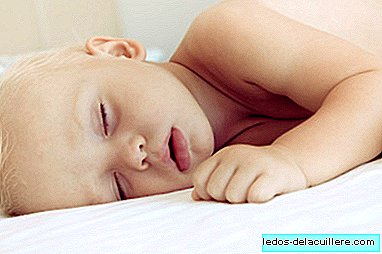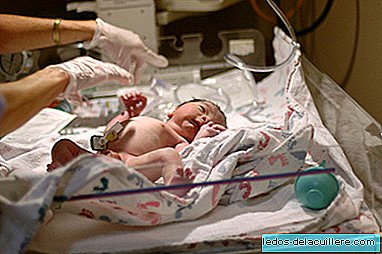
The first hours of life of the newborn are keys to assess their general condition. That's why during the time he stays in the hospital receive the first medical checkups.
Control over the hours after birth are very important to ensure that the baby is well, so at this point the observation by the parents is essential to communicate to the pediatrician any concerns regarding your baby.
As soon as he is born and after being presented to the parents, the baby is given his first medical check-up known as the Apgar test, a scoring system to assess the state of the newborn at the time of birth.
The baby's first medical check-up is done in the delivery room itself while the mother is treated at the last stage of delivery. It consists of an exhaustive examination by a pediatrician in which weight, length, cranial perimeter, thoracic perimeter, factor and blood group are measured.
Also check the head, hips, chest, genitals, spine and extremities of the baby to make sure everything is normal and no abnormality or malformation is detected.
Apgar test
One minute after birth, a assessment of the general condition of the newborn called the Apgar test that is repeated five minutes later.
The test receives that name because it was Dr. Virgina Apgar, in 1953, who devised this form of evaluation, which for some is not an objective assessment, but depends on the subjective criteria of the person who performs it.
In any case, it is the form that is currently used that scores the general condition of the baby from 1 to 10 according to 5 parameters. Each of the parameters is scored from 0 to 2, which by adding them reaches a maximum score of 10 points. The five parameters are:
Heart rate: does not exist (0 points), less than 100 beats per minute (1 point), greater than 100 beats per minute (2 points)
Respiratory movements: do not exit (0 points), choppy and irregular (1 point), regular and loud crying (2 points)
Muscular tone: atony (0 points), slow and reduced movements (1 point), strong movements and limb flexion (2 points)
Stimulus response: does not exist (0 points), just grimaces (1 point), coughs, sneezes and cries (2 points) Skin color: blue, white (0 points), pink trunk and blue extremities (1 point), general pinkish tone (2 points)
Most newborns get a score of between 8 and 10 points. When the result is less than 5 points, it is normally due to difficulties that the baby may have during the birth or to cardiorespiratory problems.
Second check at 24 hours
At 24 hours after birth, the pediatrician returns to do a baby check-up in which he will assess his general appearance again but will a more thorough review. He will ask the parents if he has peed, if he has started breastfeeding and if he has made his first deposition called meconium.
He will explore the spine, head, eyes, mouth, genitals, ears, extremities and especially the hips. They will perform some maneuvers, known as Ortolani and Barlow maneuvers, which consist of a series of movements that flex and open the legs to check if the joint is correct or could present an abnormality such as a hip dysplasia.
You will also be given a neurological examination to assess the newborn's reflexes such as the suction reflex, the Moro reflex, the gait reflex, the plantar grip reflex, etc.
Heel test or neonatal screening
At 48 hours of birth and then between the fourth and eighth day of life The one known as the heel test is performed because it is there where the drops of blood needed to perform the clinical tests for early detection of congenital metabolic diseases are taken.
It allows to detect hypothyroidism, adrenal hyperplasia, cystic fibrosis or hyperphenylalaninemia, diseases in which an early diagnosis is essential to avoid important consequences such as brain damage or mental retardation.
Sometimes a baby is also practiced hearing test, although it is not an evaluation that is widespread. It would be desirable that all newborns be performed to rule out any problems such as hearing impairment or deafness so that they can be treated before 3 years.



